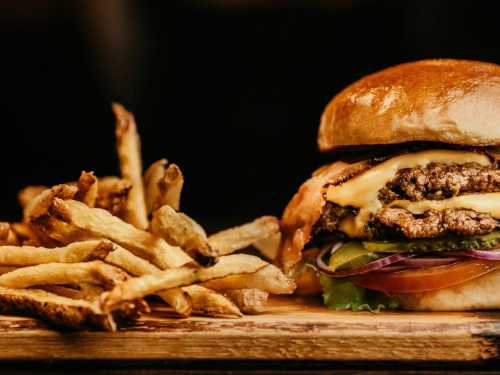
Imagine ordering a juicy burger or a flavorful pizza. What if, along with them, you received an invisible portion of chemicals used to produce plastic bottles and packages? It doesn't sound very appetizing, right? This is exactly the problem that American scientists have discovered: they found so-called phthalates in almost all food samples from the most popular fast food chains.
The results of the work were published in the Journal of Exposure Science & Environmental Epidemiology.
What kind of beast is this and why is it in my food?
In short, phthalates are plastic “plasticizers.” They make plastic wrap flexible and disposable gloves stretchy. The problem is that these chemicals easily “leak” from plastic into food and then into our bodies.
And that's serious. Scientists call them “hormone disruptors” because they interfere with our endocrine system. This can lead to reproductive health problems in men, developmental disorders in girls, and even negatively affect the baby during pregnancy.
How do these chemicals get into your fries? Fast food has a long journey: it's processed in factories, cooked in plastic gloves, and wrapped in packaging. At each stage, the food comes into contact with plastic, and microscopic particles of phthalates “migrate” into it.
What did the investigation show?
The study was conducted by reputable scientists from several American universities, including Harvard. They simply went to McDonald's, Burger King, Pizza Hut, and other establishments, bought the most ordinary food, and took it to the laboratory. The results were amazing:
- More than 80% of the samples contained phthalate, which is associated with the risk of developing asthma.
- Another type was found in 70% of the food, which can harm the reproductive system.
The most unwanted “additives” were found in meat dishes – burgers and burritos. Scientists suggest that this is because phthalates dissolve well in fats.
So, no more fast food?
And now the most interesting point. Although phthalates were found almost everywhere, their concentration in each individual portion did not exceed the officially permitted norms. That is, after eating one burger, you are unlikely to get poisoned.
So what's the problem then? Scientists are concerned about the cumulative effect. Imagine getting a tiny, “safe” dose every day from various foods, water, cosmetics. Over the years, these doses add up to a large amount that can already harm your health.
The study caused a stir. The U.S. Food and Drug Administration has promised to review its safety standards. But the fast food giants themselves, when contacted for comment, ignored the request. So for now, the question of how safe our favorite fast food is remains open.
Although time has passed since the publication of that study (2021), the situation with chemicals in fast food and processed foods remains a problem. More recent studies, including Consumer Reports, only confirm: dangerous plasticizers have not disappeared anywhere, and therefore the problem highlighted by scientists remains relevant today.






